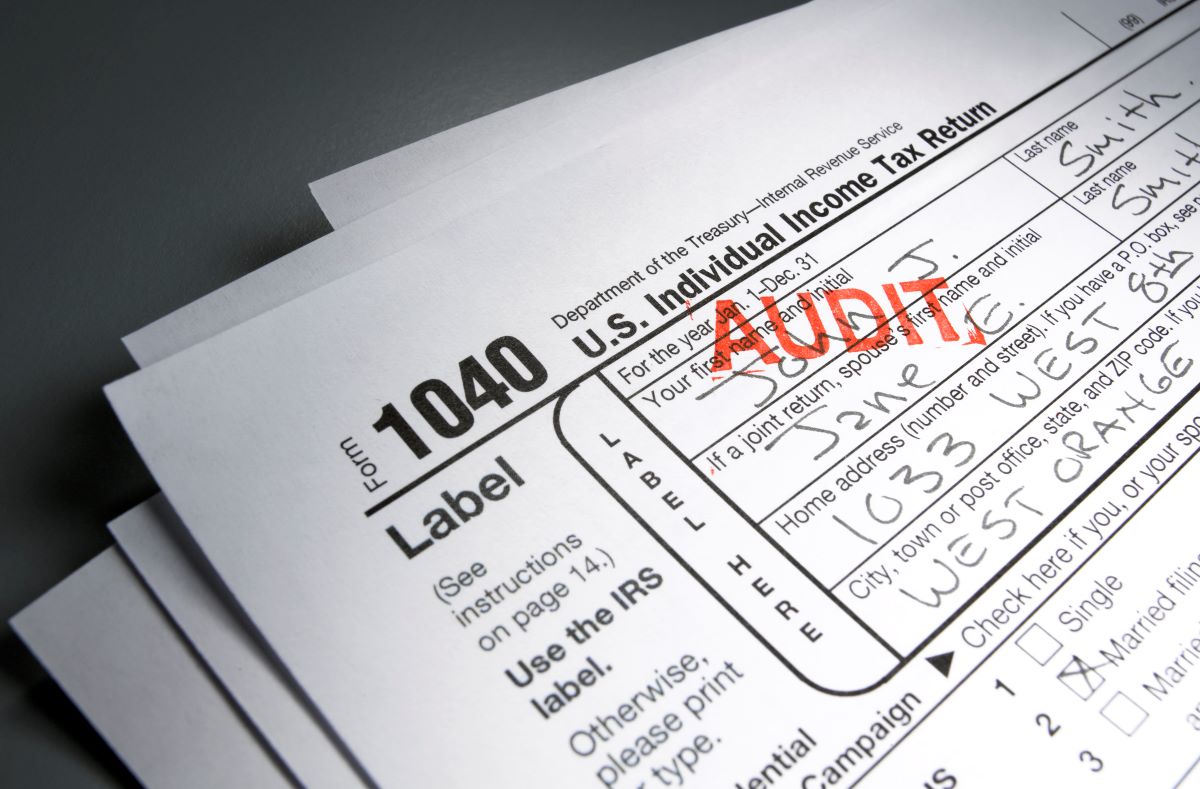

Finance
How Much Do Insurance Underwriters Make?
Published: November 16, 2023
Discover the average salaries of insurance underwriters in the finance industry and learn how much these professionals make.
(Many of the links in this article redirect to a specific reviewed product. Your purchase of these products through affiliate links helps to generate commission for LiveWell, at no extra cost. Learn more)
Table of Contents
- Introduction
- Job Description and Responsibilities of Insurance underwriters
- Factors Affecting Insurance Underwriter Salaries
- Skills and Qualifications Required for Insurance Underwriters
- Average Salary Range for Insurance Underwriters
- Compensation and Benefits for Insurance Underwriters
- Job Outlook for Insurance Underwriters
- Conclusion
Introduction
Insurance underwriters play a crucial role in the insurance industry by assessing and evaluating risks associated with insurance applications. They analyze various factors such as financial data, claims history, and medical records to determine the potential risks and decide whether to approve or deny insurance coverage. As part of their responsibilities, insurance underwriters also set the terms and premiums for policies based on their risk assessment.
The insurance industry relies heavily on underwriters to ensure the financial stability and profitability of insurance companies. This makes the role of insurance underwriters vital in the overall success of the insurance industry.
In addition to assessing risks, insurance underwriters also need to stay up to date with industry trends, regulations, and market conditions. They must possess a solid understanding of the various types of insurance, including life insurance, property and casualty insurance, health insurance, and more. This extensive knowledge enables them to make informed decisions and provide accurate evaluations.
Insurance underwriters collaborate with other professionals in the insurance industry, such as brokers, agents, and actuaries, to gather the necessary information for risk assessment. Effective communication and teamwork are essential in this role to ensure accurate evaluations and to provide the best possible coverage for policyholders.
Now that we’ve covered the basics, let’s delve deeper into the job description, responsibilities, and qualifications required to become an insurance underwriter.
Job Description and Responsibilities of Insurance underwriters
Insurance underwriters are responsible for evaluating and assessing insurance applications to determine the potential risks involved in providing coverage. They analyze various factors such as financial data, claims history, and medical records to make informed decisions on policy approvals, coverage limits, and premiums. Here are some of the key responsibilities of insurance underwriters:
- Reviewing insurance applications: Underwriters carefully review insurance applications to gather all necessary information related to the potential risks involved. They analyze the applicant’s financial status, medical history, and other relevant factors to assess the risk level.
- Evaluating risk: Underwriters evaluate the risks associated with providing insurance coverage based on the information gathered from the application. They assess factors such as the applicant’s age, health conditions, occupation, and past claims history to determine the likelihood of future claims.
- Setting terms and premiums: Based on the risk assessment, underwriters determine the terms and conditions of the policy, including coverage limits, deductibles, and premiums. They aim to strike a balance between providing adequate coverage and maintaining profitability for the insurance company.
- Collaborating with other professionals: Insurance underwriters work closely with insurance agents, brokers, and actuaries to gather additional information and get a comprehensive view of the risk profile. They may also consult medical professionals or industry experts to make informed decisions.
- Staying up to date: It is essential for underwriters to stay current with industry trends, market conditions, and changing regulations. They need to adapt their risk assessment strategies as per the evolving landscape of the insurance industry.
- Communicating decisions: Underwriters communicate their decisions to insurance agents, brokers, or policyholders. When applications are denied, they provide clear explanations for the decision and offer suggestions on how the applicant can improve their chances in the future.
Insurance underwriters play a crucial role in maintaining the financial stability and profitability of insurance companies. Their expertise in risk assessment ensures that insurance policies are priced accurately and cover potential risks adequately. Additionally, their decisions directly impact the overall success of the insurance business by minimizing potential losses and ensuring the financial viability of the company.
Factors Affecting Insurance Underwriter Salaries
When it comes to determining salaries for insurance underwriters, several factors come into play. The insurance industry offers competitive compensation packages to attract and retain skilled professionals who can effectively assess risk and make accurate underwriting decisions. Here are some of the key factors that can influence the salaries of insurance underwriters:
- Experience: Experience is a significant factor in determining salary levels for insurance underwriters. Those with more years of experience typically have a deeper understanding of risk assessment and are often trusted with more complex cases. As underwriters gain expertise and prove their worth, they become eligible for higher compensation.
- Educational Background: The level of education also plays a role in salary determination. Most insurance underwriter positions require a bachelor’s degree, preferably in finance, business administration, or a related field. Holding an advanced degree, such as a master’s in business administration (MBA) or a professional certification, can enhance career prospects and potentially lead to higher salaries.
- Expertise and Specialization: Underwriting positions can vary depending on the type of insurance involved, such as property and casualty, life, health, or reinsurance. Specializing in a specific area of underwriting can lead to higher salaries due to the specialized knowledge and skills required.
- Industry and Company: Salaries may vary depending on the specific insurance industry and the size and reputation of the company. Larger insurance companies and those in high-demand sectors such as healthcare or technology tend to offer more competitive compensation packages to attract top talent.
- Geographical Location: The location of employment can impact salary levels due to regional market conditions and cost of living. Urban areas and regions with a higher demand for insurance underwriters may offer higher salaries compared to rural or less competitive locations.
- Job Performance and Achievements: Exceptional job performance, demonstrated by meeting or exceeding productivity and quality standards, can lead to salary increases and advancement opportunities. Insurance underwriters who consistently demonstrate their value to the company through accurate risk assessment and profitability can negotiate higher salaries or earn bonuses.
It’s important to note that salaries for insurance underwriters can be influenced by a combination of these factors. It is also worth considering that salary ranges may vary based on the level of seniority within the underwriting role, with more experienced underwriters typically earning higher salaries. As the insurance industry evolves and faces new challenges, professionals who continuously update their skills and remain adaptable to changing market dynamics may position themselves for increased compensation opportunities.
Skills and Qualifications Required for Insurance Underwriters
To succeed as an insurance underwriter, there are specific skills and qualifications that are essential to possess. These skills enable underwriters to effectively evaluate risk and make informed decisions on insurance applications. Here are some of the key skills and qualifications required for insurance underwriters:
- Analytical skills: Insurance underwriters need strong analytical skills to evaluate complex information and assess risks accurately. They must be able to analyze financial statements, claims history, and other relevant data to make informed decisions.
- Attention to detail: Having a keen eye for detail is crucial for insurance underwriters. They must carefully review insurance applications and documentation to identify any potential issues or discrepancies that could impact the risk assessment.
- Decision-making skills: Underwriters need strong decision-making skills to evaluate risks and determine the terms and conditions of insurance policies. They must be able to weigh the potential risks against the profitability and financial stability of the insurance company.
- Strong interpersonal skills: Insurance underwriters frequently collaborate with other professionals, such as insurance agents, brokers, and actuaries. Effective communication and interpersonal skills are essential to gather relevant information and work together as a cohesive team.
- Knowledge of insurance policies and regulations: Underwriters should possess a solid understanding of different types of insurance, industry regulations, and market trends. This knowledge enables them to accurately assess risks and comply with legal requirements.
- Mathematical and statistical proficiency: Underwriters often work with numerical data, calculate premiums, and analyze statistical models. Strong mathematical and statistical skills are necessary to perform these tasks accurately.
- Computer proficiency: Insurance underwriters use various software and databases to gather information and perform risk assessments. Proficiency in using computer systems and software is essential for efficient workflow and accurate data analysis.
- Educational qualifications: Most entry-level positions require at least a bachelor’s degree in finance, economics, business administration, or a related field. Some companies may prefer candidates with advanced degrees or professional certifications related to insurance or underwriting.
- Continuing education: The insurance industry is constantly evolving, with new regulations and technology advancements. Insurance underwriters must stay updated with industry trends and undergo continuing education to enhance their skills and knowledge.
Developing and honing these skills, combined with obtaining the necessary qualifications, can help individuals pursue a successful career in insurance underwriting. Continuous learning and staying updated on industry trends ensure that underwriters remain knowledgeable and capable of making accurate risk assessments in an ever-changing insurance landscape.
Average Salary Range for Insurance Underwriters
The salary range for insurance underwriters can vary depending on factors such as experience, qualifications, and the location and size of the employer. The insurance industry recognizes the importance of skilled underwriters in assessing risk and determining policy terms. Here is an overview of the average salary range for insurance underwriters:
Entry-level insurance underwriters with limited experience can expect to earn an average annual salary ranging from $40,000 to $60,000. As underwriters gain more experience and expertise, their salaries can increase significantly. Mid-level underwriters with a few years of experience typically earn an average annual salary between $60,000 and $80,000.
Experienced underwriters who have been in the industry for several years and have a proven track record can earn higher salaries. Senior underwriters can expect to earn an average annual salary ranging from $80,000 to $120,000 or more. Salary levels for senior underwriters can also vary depending on the employer’s size, location, and industry sector.
It’s important to note that salaries can also vary based on the specific type of insurance underwriting. For example, underwriters specializing in property and casualty insurance or health insurance may have different salary ranges compared to those working in life insurance or reinsurance.
Additionally, the location of employment can directly influence salary levels. Metropolitan areas and regions with a high demand for insurance underwriters may offer higher salaries due to increased competition for top talent. Cost of living factors can also impact salary ranges, with higher salaries typically offered in areas with a higher cost of living.
While these salary ranges provide a general overview, it’s important to consider that individual circumstances, such as education, certifications, and performance, can also affect salary levels. Underwriters with advanced degrees, professional certifications, and a proven track record of success may be able to command higher salaries or negotiate better compensation packages.
It’s worth noting that in addition to base salaries, insurance underwriters may be eligible for bonuses, commissions, and additional benefits such as health insurance, retirement plans, and paid time off. These additional perks contribute to the overall compensation and can vary depending on the employer’s policies and industry practices.
Understanding the average salary range for insurance underwriters provides a benchmark for professionals in this field. However, it’s crucial to consider individual qualifications, experience, and industry demand when assessing potential salary expectations.
Compensation and Benefits for Insurance Underwriters
Compensation and benefits for insurance underwriters can vary depending on factors such as experience, industry, company size, and location. Employers in the insurance industry understand the value of skilled underwriters and offer competitive compensation packages to attract and retain top talent. Here are some common components of compensation and benefits for insurance underwriters:
- Base Salary: Insurance underwriters receive a base salary, which forms the foundation of their total compensation package. Salaries can vary based on factors such as experience, qualifications, and industry specialization.
- Bonuses: Many insurance companies offer performance-based bonuses to underwriters based on individual or team achievements. Bonuses can be awarded for meeting or exceeding productivity targets, maintaining profit margins, or consistently making accurate underwriting decisions.
- Commissions: In some cases, underwriters may be eligible for commission-based compensation. This typically applies to positions where underwriters work closely with agents or brokers to generate new business.
- Health Insurance: Insurance underwriters often receive comprehensive health insurance coverage, including medical, dental, and vision. These benefits help protect underwriters and their families by providing access to essential healthcare services.
- Retirement Plans: Many insurance companies offer retirement plans, such as 401(k) or pension plans, to help underwriters save for their future. Employers may offer contributions or match a percentage of employee contributions to encourage retirement savings.
- Paid Time Off: Underwriters typically enjoy paid time off benefits, including vacation days, holidays, and sick leave. The amount of paid time off can vary based on years of service and company policies.
- Flexible Work Arrangements: Some insurance companies offer flexible work arrangements, such as remote work options or flexible schedules, to promote work-life balance and accommodate individual needs.
- Professional Development: Many insurance employers support the professional growth of underwriters by providing opportunities for continuing education, professional certifications, and training programs. These initiatives help underwriters stay updated with industry trends and advancements in underwriting practices.
- Employee Assistance Programs: Some insurance companies provide employee assistance programs (EAPs) to support the well-being of underwriters. EAPs often include counseling services, mental health support, and resources for work-life balance.
It’s important to note that specific compensation and benefits packages can vary among insurance companies. Larger companies or those in metropolitan areas may offer more comprehensive benefits packages compared to smaller companies or those in rural areas. Additionally, the level of seniority, performance, and industry demand can also influence the compensation and benefits offered to underwriters.
Insurance underwriters should carefully evaluate the compensation and benefits package offered by a potential employer to ensure it aligns with their needs and career goals. A comprehensive package that includes competitive compensation, adequate benefits, and opportunities for professional growth can contribute to job satisfaction and long-term success in the field of insurance underwriting.
Job Outlook for Insurance Underwriters
The job outlook for insurance underwriters is influenced by various factors such as technological advancements, evolving industry trends, and changes in the overall insurance landscape. While the demand for insurance underwriters may fluctuate based on these factors, the profession continues to play a vital role in the insurance industry. Here is an overview of the job outlook for insurance underwriters:
According to the U.S. Bureau of Labor Statistics, the employment of insurance underwriters is projected to decline by 4% from 2019 to 2029. This decline can be attributed to several factors, including advancements in automation and underwriting software that streamline the underwriting process. These technological advancements have increased efficiency and reduced the need for manual underwriting in some areas.
However, despite this projected decline, there will still be ongoing demand for skilled underwriters. While automation can handle routine and straightforward underwriting tasks, complex cases, specialized policies, and risk evaluation will still require the expertise of human underwriters. Experienced underwriters who possess strong analytical skills, industry knowledge, and the ability to make sound underwriting decisions will continue to be valuable assets to insurance companies.
Additionally, the insurance industry is dynamic and constantly evolving. New risks emerge, and there is a continuous need for underwriters to adapt and assess these risks. Underwriters who stay updated with industry trends, regulations, and technological advancements will have better job prospects.
In recent years, there has been a shift in the underwriter’s role from mainly assessing risk to providing a more consultative approach. Underwriters are now expected to work closely with agents, brokers, and clients to offer tailored solutions and risk management strategies. This shift emphasizes the importance of strong interpersonal skills, effective communication, and the ability to build and maintain relationships.
Furthermore, the demand for specialized underwriters, such as those with expertise in areas like cybersecurity insurance, environmental insurance, or emerging industries, is expected to remain steady or even grow. As new risks and insurance products emerge, specialized underwriters will be highly sought after for their in-depth knowledge and ability to evaluate unique risks.
Overall, while there may be a decline in traditional underwriting roles due to automation and technological advancements, the demand for skilled underwriters with expertise in complex risk evaluation and specialized insurance products is likely to persist. Adapting to industry changes, continuously updating skills, and embracing new technologies will be crucial for underwriters to stay competitive and secure their position in the evolving insurance landscape.
Conclusion
Insurance underwriters play a vital role in the insurance industry by assessing risk, evaluating insurance applications, and setting policy terms and premiums. They are responsible for ensuring the financial stability and profitability of insurance companies by accurately assessing risks and making informed decisions.
To excel as an insurance underwriter, one must possess a range of skills including analytical thinking, attention to detail, and strong decision-making abilities. Ongoing education and staying up-to-date with industry trends and regulations are also essential to keep pace with the evolving insurance landscape.
While the job outlook for insurance underwriters is projected to decline slightly, there will still be demand for skilled underwriters who can handle complex cases and specialize in niche insurance sectors. Technological advancements are automating routine tasks, but the human touch and expertise provided by underwriters are still crucial for risk assessment and decision-making in more challenging situations.
The average salary range for insurance underwriters varies based on factors such as experience, qualifications, and the location and size of the employer. Additionally, compensation packages often include bonuses, commissions, health insurance, retirement plans, and other benefits to attract and retain top talent.
In conclusion, while the insurance industry continues to evolve and adapt to new challenges, insurance underwriters remain essential for evaluating risk and determining appropriate policy coverage. By developing the necessary skills, staying informed, and embracing technological advancements, individuals can pursue a successful career as an insurance underwriter in this dynamic and rewarding field.














